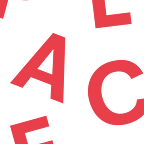How do we model the kind of future we want to see?
Conversations amongst our partners and us during the COVID19 pandemic. 5th May 2020
This week we asked ourselves: How do we model the kind of future we want to see? By digging deeper into the following questions, we opened up a broader understanding that might enable us to act differently.
i) How can we create spaces that invite everyone to co-create, where all contributions are valued? ii) What kind of structures support more equitable spaces? iii) Can we change how we practise accountability, governance and our approach to risk? iv) How can we acknowledge and work with the loss, grief and reduce the harm?
How can we create spaces that invite everyone to co-create, where all contributions are valued?
- Can we create shared ownership of spaces? Can we map the spaces and step into them?
- Can we look at shared problems in these spaces? Focus on different questions that help organisations get out of the way. Conversations are still about services and service users.
- We need payment for everyone involved and different power structures that enable conversations to happen, otherwise we are just using people.
- Where is the wisdom we are not bringing into the work? It seems there are three sets of players who need each other: 1) people involved in conversation like these 2) people on the ground supporting others, who are probably suffering from fatigue and 3) people who face chaos in their own lives.
What kind of structures support more equitable spaces?
Mutual aid groups tap into ideas of mutuality and reciprocity, making them very different to how we currently organise our organisations, workplaces and systems.
Peer support networks are great places for dark humour, support, contribution and camaraderie.
Funders and commissioners use practices of control to keep the power imbalances in place and enable the status quo to continue. How can they support these more equalising structures?
Can we change how we practise accountability, governance and our approach to risk?
•What does it mean to be a Council now? Local authorities, because they have elected councillors tend to see themselves as the representatives of local places. But they don’t have all the answers.
•How can decision making be more equitable, using resources differently to pay people in poverty to be part of addressing the issues they face?
•What democratic structures can we put in place to support marginalised people to engage on their terms?
•What does a different form of governance look like where accountability is mutual? Where all the people have a stake/input and collective ownership of what happens?
•Risk is seen as protecting the organisation, rather than people dying out there.
•We have a culture that expects people with certain jobs, e.g. Council leaders to sort things out. When they share power, it’s seen as if they are abdicating responsibility
•Social infrastructure has relentlessly been degraded, and what remains is predicated on inequity leveraged by access to knowledge and resource control
•If the systems behaviours are important, then how can the place action inquiry adapt so that it doesn’t have decision making and resource inequality rived through it.
•People who think they are ‘’in charge’ (or want to be) are bolstered by crisis, as they think people look to their ‘leaders’ for action and it’s expected of them.
•Governance sets the baseline for the types of problems we are comfortable maintaining and creating. Then goes on to monitor the methods we use to address issues adjacent to these problems.
How can we acknowledge and work with the loss, grief and reduce the harm?
- How can we mourn and grief the lives that have been lost and impacted?
- We need to be more aware of the damage and harm we do to people. The needs of organisations are put first. We also need to be aware that not deciding or not acting is an intentional act that can harm. There are no perfect solutions, but we could be vigilant and monitor this. What are the unintended consequences of our actions?
What hit home?
The power in ego v humility. Are people doing work because they want power or their ego massaging; or are they acting with humility and kindness?
Risk is seen as protecting organisational liability rather than what happens to the people they are supposed to serve. Our risk register is all about the organisation and nothing about who the resources are for.
Talking about mutual accountability opens up different kinds of possibilities. What is underlying all of this is power over v power with and what is our role within that and responsibility for not reinforcing the power imbalance within systems.
People in local authorities are responding emotionally. They feel guilty and ashamed for not responding quickly and for not knowing what to do. Understanding this helps us to understand some of the decisions being made.
At a time like this, there is an opportunity to unveil and shine a light on some of the structures and mechanisms that keep the power imbalances.
The governance we have got gives us what we are living with.
This was a confusing conversation, and the question set at the beginning was hard. This space allows us to make sense and figure stuff out together and to make our way through this.
Powered by the collective network of people, we have amplified what we know. So we have to sit on it and keep on with the work.
We do look to leaders, and we expect a lot from them, with job specifications which say what jobs are for and where the buck stops. I don’t know how mutual accountability can come into being when I also blame. People will look to anyone who ‘is responsible’ and we say it’s your job’.
